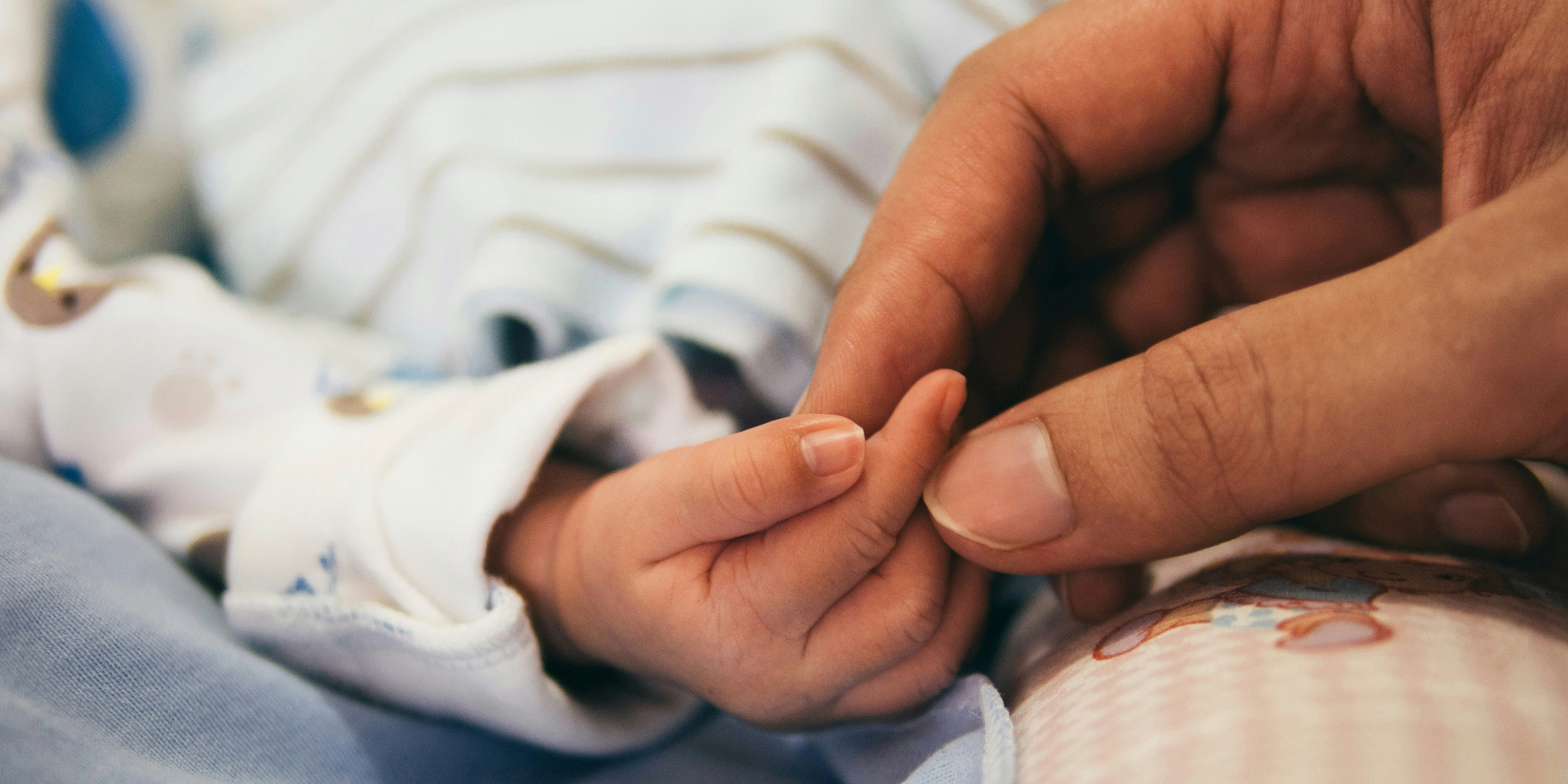If we take an honest look around us and within ourselves, we discover that the gulf between the mentality of those who choose prayer over medical treatment and the essence of the Christian mindset is not as deep as it seems. But it remains a gulf nonetheless.
Little Jessica Crank didn’t stand a chance against the cancer with which she was diagnosed. Even though her parents took her in for her first examination after X-rays showed “bone disintegration” under the huge lump in her shoulder, doctors said that even if they’d come in earlier, she couldn’t have escaped. But the fact that the parents never took Jessica to the ER after the emergency examination weighed heavily in the judge’s estimation after Jessica died and the parents were charged.
The girl’s mother, Jaqueline Crank, was charged with child neglect, as was her partner, Ariel Ben Sherman, who did not live to see the verdict following an appeal. In her statement to the court, Jaqueline said that in the face of her daughter’s illness, she had decided to turn to “Jesus Christ, my Lord and my Savior, my Healer, Defender.” Crank “knew there was a problem” with the “grapefruit-sized tumour” on her daughter’s shoulder. But she was convinced that Christ “is the only healer” and “through that belief we took it in our hands to pray for her, to heal her with prayer,” she said.
The court also considered the doctors’ documents, which showed that, from a medical point of view, nothing could have been done to cure the rare form of cancer (Ewing’s sarcoma), but the doctors could have significantly improved the symptoms of the disease and helped the little girl to have at least a slightly less traumatic end. The defence attorneys instead invoked the parents’ right under current law (in the Tennessee Code Annotated) to seek “treatment by spiritual means through prayer alone.”
But the verdict was “guilty” because of a detail the judge found significant. Although she and her partner had formed a prayer circle, Jaqueline Crank did not belong to a “recognised church or religious denomination.” The court therefore ruled that Jacqueline could not benefit from the protection of the right to healing by faith. She was sentenced to 11 months and 29 days of unsupervised probation. This means that she was not sentenced to jail, but her conviction went on her record and any offence committed in the next 12 months could have landed her in jail.
A year later, the Tennessee legislature took action and tacitly repealed the faith-healing exemption in its child-neglect law. In doing so, the legislature removed the provision that, instead of protecting religious freedom, had endangered the most vulnerable segment of society: children.
Faith that leads to death
In recent years, there have been many high-profile cases of children dying because their parents have pressured them or simply decided against life-saving medical treatment. This is the sad story of Dennis Lindberg, who died at the age of 14 after refusing blood transfusions that would have helped him survive leukaemia.
In a comprehensive and psychologically powerful piece, journalist Isolde Raftery reveals the terrible mix of innocence, naivety, but also persuasion, pressure, and even superficiality that made the teenager’s avoidable death possible. To read this story is to enter a world of shock that leaves you without the patience to try to understand both sides. And it is only natural that the avoidable death of a child should reduce anyone’s patience to zero.
The death of the Romanian artist Gyuri Pascu also caused a very sad scandal, after the journalist Cătălin Tolontan revealed to the public that Pascu belonged to an esoteric sect hostile to conventional medicine. About the leader of this organisation, Master Dang, Tolontan writes that “he was sentenced to four years in prison in Switzerland and Belgium for fraud and because a child died as a result of the ‘illegal practice of medicine'”, but also that this master had passed on his ability to “cure the root of diseases, not the symptoms,” as the cult’s followers believe, to Gyuri Pascu’s ex-wife.
The internet epidemic
The lack of trust in doctors has recently been fuelled by the rampant digital dissemination of medical pseudo-information through websites maintained by unscientific or, at best, self-taught individuals. The internet is full of conspiracy theories from some unknown corner of the world, and unverified and unproven success stories of strange and torturous treatments for patients suffering from all kinds of ailments.
Sometimes such stories turn into real media campaigns, even if they are based on outright lies. At other times, medicine damages its own image, as has happened when regulators have uncovered fraud in the research system. This is the case in China, where it has been reported that 80% of recent clinical trials involve some form of fraud. Who can blame those in a position to make decisions about their health for not trusting doctors when another review of retractions from biological and medical journals found that the number of studies retracted due to fraud or suspected fraud has risen from 10 per million (1976) to around 1300 per million (2023)—or when we hear horror stories from hospitals about the blatant inhumanity of some medical staff?
Faced with such stories, many people end up practising an exclusive faith in nature, supernatural energies, or God. Of these three exclusivities, the third most often raises ethical dilemmas. Therefore, before jumping to conclusions, it is worth exploring the issue further.
What to believe?
A Barna survey found that most Americans believe in supernatural healing. Most American adults (66%) believe that people can be physically healed supernaturally by God. This majority is made up of those who strongly (33%) or somewhat (33%) believe it is possible to be physically healed by God. The remaining 34% are sceptical, with 19% strongly disagreeing and 15% somewhat disagreeing that faith healing exists. Why is it that a majority accept the idea that God intervenes supernaturally to heal people? This question goes to the very essence of the Christian faith.
Belief in miracles is not only compatible but consistent with belief in the Christian God. Christianity preaches the restoration of human spiritual health through God’s historical (sacrificial) but also present (guiding) intervention in human life. Through this supernatural action of God, Christians hope to achieve the ideal of spiritual healing from sin. In Christianity, this healing is a mystery because the Holy Spirit is considered to work “like the wind” (John 3:8)—it is not known where it comes from or where it goes. In other words, spiritual salvation is a miracle in itself. Faith in God’s power to perform a physical miracle naturally accompanies this belief. So belief in God presupposes belief in miracles, but this belief must be trained.
The foundational book of Christianity, the Bible, contains many examples of miracles. But it is important to note that the Bible’s picture of miracles is that they almost always are paired with a spiritual message. In healing the blind, Christ was not acting as a shaman, able to repair a physical defect instantly and spectacularly, but was communicating to those healed and to those who would learn of the healing that God was there, and that He had repaired the physical as a practical application of what He is willing and able to do spiritually.
Furthermore, to believe in miracles is not to limit oneself strictly to them. Those who believe that God intervenes in people’s lives through science, or that He guides doctors to one result or another, are no less faithful or no more unbelieving. Divine intervention, by whatever means, is still a miracle.
Moreover, Christianity preaches the superiority of the faith that continues to love and hope despite the absence of obvious divine intervention. This is a sign that it takes more faith to believe in a God who does not demonstrate His love for mankind through miracles. “Without faith it is impossible to please God,” said Christ. Faith is a matter of the soul, intimate and incompatible with public analysis. At some point, however, we will have to define our faith very responsibly, especially when our lives depend on it.




















